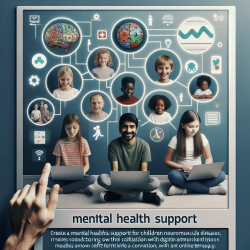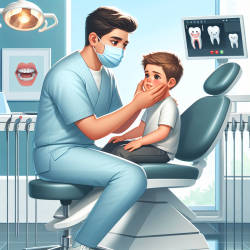Introduction
The COVID-19 pandemic has profoundly impacted healthcare delivery, pushing practitioners to adapt rapidly to new modes of service provision. A pivotal area of transformation has been in genetic care, as highlighted in the research article "COVID-19’s Impact on Genetics at One Medical Center in New York." This study offers valuable insights into the integration of telemedicine in genetic services, presenting an opportunity for practitioners to enhance their skills and improve patient outcomes.
Telemedicine: A New Frontier in Genetic Care
As the pandemic unfolded, Columbia University Irving Medical Center (CUIMC) swiftly transitioned to telemedicine to continue providing genetic care to a diverse patient population. This shift was not only a response to immediate challenges but also a strategic move that revealed the potential benefits of remote consultations.
Key takeaways from the study include:
- Telemedicine facilitated continued access to genetic services for patients, reducing appointment wait times and increasing convenience.
- Providers could conduct comprehensive evaluations, including family history reviews and testing discussions, in a virtual setting.
- Patients appreciated the convenience of remote consultations, with many expressing a preference for video visits even beyond the pandemic.
Improving Practitioner Skills
Practitioners can leverage the findings from this research to refine their telemedicine practices and enhance patient care. Here are some strategies to consider:
- Embrace Technology: Familiarize yourself with telemedicine platforms and tools to ensure seamless patient interactions. Invest time in training and continuous learning to stay updated with technological advancements.
- Enhance Communication: Develop clear communication strategies to effectively convey complex genetic information to patients remotely. Utilize visual aids and ensure language support for non-English-speaking patients.
- Focus on Patient Experience: Gather feedback from patients to understand their telemedicine experience and identify areas for improvement. Tailor your approach to meet individual patient needs and preferences.
Encouraging Further Research
The transition to telemedicine in genetic care is an evolving field that warrants further exploration. Practitioners are encouraged to engage in research to assess the long-term impacts of telemedicine on patient outcomes and satisfaction. Areas of interest may include:
- The effectiveness of telemedicine in managing specific genetic conditions.
- The role of telemedicine in reducing healthcare disparities and improving access for underserved populations.
- The development of best practices for virtual genetic counseling and consultations.
Conclusion
The integration of telemedicine into genetic care has demonstrated significant potential to improve access and outcomes for patients. By embracing these changes and continuing to refine telemedicine practices, practitioners can enhance their skills and provide high-quality care to diverse patient populations.
To read the original research paper, please follow this link: COVID-19’s Impact on Genetics at One Medical Center in New York.










